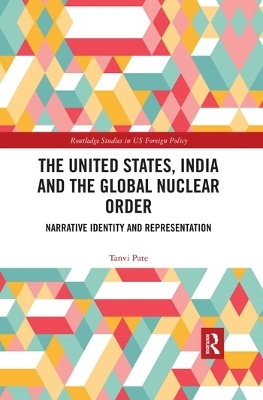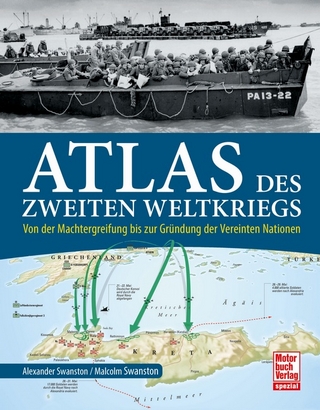
The United States, India and the Global Nuclear Order
Routledge (Verlag)
978-0-367-52457-9 (ISBN)
In the Post-Cold War era, US nuclear foreign policies towards India witnessed a major turnaround as a demand for ‘cap, reduce, eliminate’ under the Clinton administration was replaced by the implementation of the historic ‘civil nuclear deal’ in 2008 by Bush, a policy which continued under Obama’s administration.
This book addresses the change in US nuclear foreign policy by focusing on three core categories of identity, inequality, and great power narratives. Building upon the theoretical paradigm of critical constructivism, the concept of the ‘state’ is problematised by focusing on identity-related questions arguing that the ‘state’ becomes a constructed entity standing as valid only within relations of identity and difference. Focusing on postcolonial principles, Pate argues that imperialism as an organising principle of identity/difference enables us to understand how difference was maintained in unequal terms through US nuclear foreign policy. This manifested in five great power narratives constructed around peace and justice; India-Pakistan deterrence; democracy; economic progress; and scientific development. Identities of ‘race’, ‘political economy’, and ‘gender’, in terms of ‘radical otherness’ and ‘otherness’ were recurrently utilised through these narratives to maintain a difference enabling the respective administrations to maintain ‘US’ identity as a progressive and developed western nation, intrinsically justifying the US role as an arbiter of the global nuclear order.
A useful work for scholars researching identity construction and US foreign and security policies, US-India bilateral nuclear relations, South Asian nuclear politics, critical security, and postcolonial studies.
Tanvi Pate is a Lecturer in Security and Intelligence Studies at the Centre for Security and Intelligence Studies (BUCSIS), University of Buckingham. She is also associated with the Institute of Continuing Education (ICE), University of Cambridge, as a Panel Tutor in International Relations (IR). Her research interests encompass the discipline of IR with a focus on critical geopolitics, specifically concerning great power-rising power encounters in the context of India and the global order, India’s bilateral relations, and the politics of the Indo-Pacific.
Introduction. 1 Reconceptualising Theory and Methodology of Foreign Policy: Narrative, State Identity and Action from a Critical Constructivist-Postcolonial Viewpoint 2 Creating American Nuclear Subjectivity: ‘Atoms for Peace’ in the Campaign for a New Global Nuclear Order 3 Is India a Capable Nuclear Power? The Changing Characteristics of India as the ‘Other’ (1947-1992) 4 Establishing a Post-Cold War Global Nuclear Order: The Bill Clinton Administration’s Conflicting Images of India as the ‘Other’ (1993-2001) 5 Nuclear America in a Post-9/11 World: India as the ‘Other’ in the Narratives of George W. Bush Administration (2001-2009) 6 America as the Leader of Non-Proliferation: The Continuation of US-India Nuclear Partnership during Barack Obama Administration (2009-2017) 7 Understanding the Complexity of Identity/Difference: Analysing Great Power Narratives of Bill Clinton, George W. Bush and Barack Obama Administrations from a Postcolonial Viewpoint. Conclusion
| Erscheinungsdatum | 29.04.2020 |
|---|---|
| Reihe/Serie | Routledge Studies in US Foreign Policy |
| Zusatzinfo | 1 Tables, black and white; 1 Line drawings, black and white; 1 Illustrations, black and white |
| Verlagsort | London |
| Sprache | englisch |
| Maße | 156 x 234 mm |
| Gewicht | 453 g |
| Themenwelt | Natur / Technik ► Fahrzeuge / Flugzeuge / Schiffe ► Militärfahrzeuge / -flugzeuge / -schiffe |
| Sozialwissenschaften ► Politik / Verwaltung ► Europäische / Internationale Politik | |
| Sozialwissenschaften ► Politik / Verwaltung ► Staat / Verwaltung | |
| ISBN-10 | 0-367-52457-0 / 0367524570 |
| ISBN-13 | 978-0-367-52457-9 / 9780367524579 |
| Zustand | Neuware |
| Haben Sie eine Frage zum Produkt? |
aus dem Bereich


